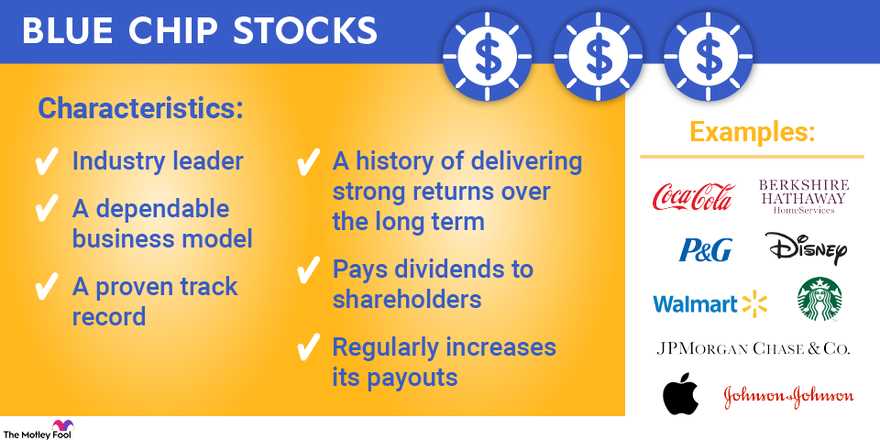Definition and Characteristics
One of the key characteristics of blue chip stocks is their reliability. These companies have a proven track record of generating consistent profits and paying dividends to their shareholders. They are often considered a safe investment option for long-term investors.
Blue chip stocks also tend to have a large market capitalization, meaning they have a high total value of outstanding shares. This indicates that these companies are well-established and have a significant presence in the market.
Investors are attracted to blue chip stocks because of their potential for long-term growth and stability. These stocks are considered to be a solid foundation for a well-diversified investment portfolio.
Key Characteristics of Blue Chip Stocks:

- Reliability: Blue chip stocks have a proven track record of consistent earnings and dividend payments.
- Market Capitalization: These stocks have a high total value of outstanding shares, indicating their significant presence in the market.
Overall, blue chip stocks are considered to be a safe and reliable investment option for long-term investors. They offer stability, consistent earnings, and the potential for long-term growth.
Examples of Blue Chip Stocks
1. Apple Inc. (AAPL)
Apple Inc. is a technology giant that designs, manufactures, and sells consumer electronics, software, and online services. With its iconic products like the iPhone, iPad, and Mac, Apple has established itself as a leader in the tech industry. The company’s strong brand, loyal customer base, and innovative products have contributed to its success and made it a blue chip stock.
2. Microsoft Corporation (MSFT)

Microsoft Corporation is a multinational technology company that develops, manufactures, licenses, supports, and sells computer software, consumer electronics, and personal computers. Microsoft’s products and services, such as Windows, Office, and Azure, are widely used and trusted by businesses and individuals around the world. The company’s consistent growth and strong financial performance have made it a blue chip stock.
3. The Coca-Cola Company (KO)
The Coca-Cola Company is a beverage company that manufactures, markets, and sells non-alcoholic beverages. Coca-Cola is one of the most recognized and valuable brands in the world, with a wide range of products including Coca-Cola, Diet Coke, Sprite, and Fanta. The company’s extensive distribution network and strong global presence have contributed to its status as a blue chip stock.
Investing in Blue Chip Stocks
1. Research and Due Diligence
2. Diversification
It is always recommended to diversify your investment portfolio to reduce risk. This means investing in a variety of blue chip stocks from different industries and sectors. Diversification can help protect your investments from the volatility of individual stocks or sectors.
3. Long-Term Perspective
Blue chip stocks are typically considered long-term investments. They may not provide quick or high returns like some speculative stocks, but they offer stability and consistent growth over time. It is important to have a long-term perspective when investing in blue chip stocks and not get swayed by short-term market fluctuations.
4. Dividend Payments

5. Dollar-Cost Averaging
One strategy for investing in blue chip stocks is dollar-cost averaging. This involves investing a fixed amount of money at regular intervals, regardless of the stock’s price. This strategy can help reduce the impact of market volatility and potentially lower the average cost per share over time.
Overall, investing in blue chip stocks can be a reliable and profitable investment strategy. However, it is important to do your own research, diversify your portfolio, have a long-term perspective, consider dividend payments, and consider dollar-cost averaging to maximize your investment returns.

Emily Bibb simplifies finance through bestselling books and articles, bridging complex concepts for everyday understanding. Engaging audiences via social media, she shares insights for financial success. Active in seminars and philanthropy, Bibb aims to create a more financially informed society, driven by her passion for empowering others.
